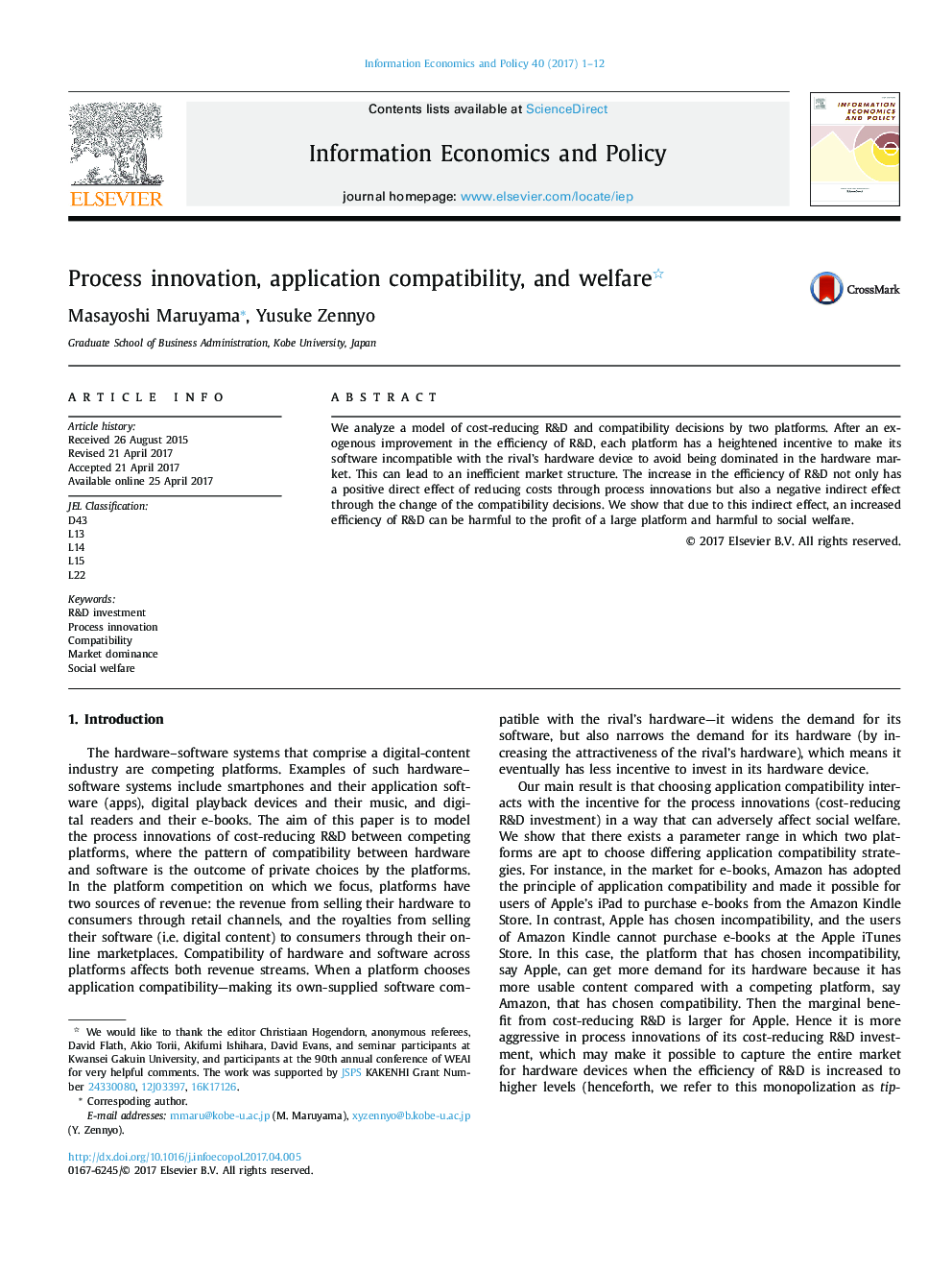| Article ID | Journal | Published Year | Pages | File Type |
|---|---|---|---|---|
| 5075637 | Information Economics and Policy | 2017 | 12 Pages |
â¢We study how compatibility strategies interact with hardware investment incentives.â¢Process innovation in hardware can lead to reduced compatibility.â¢Process innovation can be harmful to the profits of platforms and social welfare.
We analyze a model of cost-reducing R&D and compatibility decisions by two platforms. After an exogenous improvement in the efficiency of R&D, each platform has a heightened incentive to make its software incompatible with the rival's hardware device to avoid being dominated in the hardware market. This can lead to an inefficient market structure. The increase in the efficiency of R&D not only has a positive direct effect of reducing costs through process innovations but also a negative indirect effect through the change of the compatibility decisions. We show that due to this indirect effect, an increased efficiency of R&D can be harmful to the profit of a large platform and harmful to social welfare.
